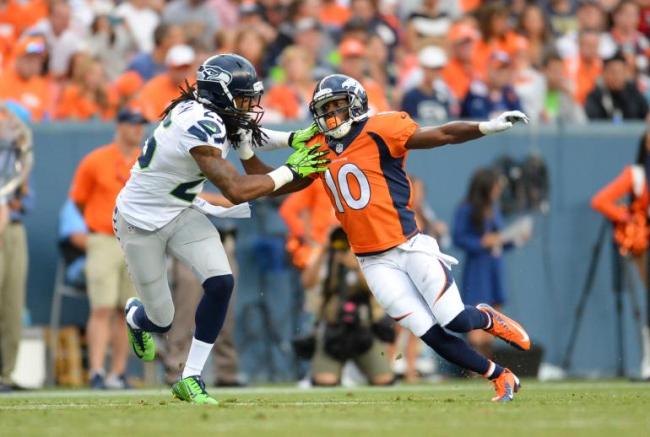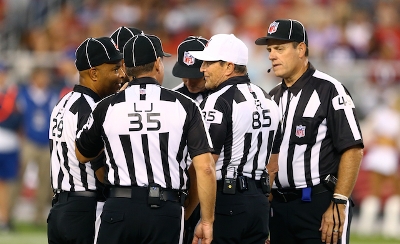Is Scoring Up in the NFL Due to More Defensive Penalties?

Seven quarterbacks in the NFL already have thrown for 20 or more touchdowns. In 1994, only eight quarterbacks reached 20 touchdown passes or more the entire season.
Scoreboards are moving higher and higher each week.
The big question is if this is due to better athletes on the offense or more penalties against the defense.
It is common knowledge that penalties for defensive holding have increased since the start of the season.
This translates to more plays on offense and fewer punts, which create more scoring drives.
Thus far, when taking into consideration only penalties that are accepted, there have been 137 penalties called for pass interference on the defense. Ten years ago there were 110 called through the same point.
That is an increase of 25%. There have been 138 penalties for defensive holding accepted compared to just 99 ten years ago at this period of the season. That represents an increase of 38%.
When pass interference is called, it means chunks of yardage is marked off, while both fouls give the offense automatic first downs.
Ten years ago through this point in the NFL season 568 first downs had been made through a penalty. Thus far, this season that total is 652, which is an increase of 15%.

The offense is also helped with rules against deliberate contact of helmet to helmet. The new rules have caused defenses, in many cases in the secondary, to back off from hitting a receiver out of fear of a penalty and in some cases that has allowed receivers to catch big passes downfield.
Vicious hits against players who are defenseless are way down which is good news.
Some believe that defensive holding should not be an automatic first down but a penalty of 10 yards, which is the same as offensive holding.
The current rules penalize the defense more than the offense for a foul that is exactly the same. Make the two equal and that might change some of the high scores.
The pick play on offense where one receiver acts as a blocker for the other even prior to the pass arriving, should be called more often. The rule book says that any player on offense blocking one yard past the line of scrimmage is committing offensive pass interference.
Some fans might complain about the penalties, especially when called against their team, but the NFL is certainly more exciting when the score is 45-42 deep in the fourth quarter than when it is 14-3.


